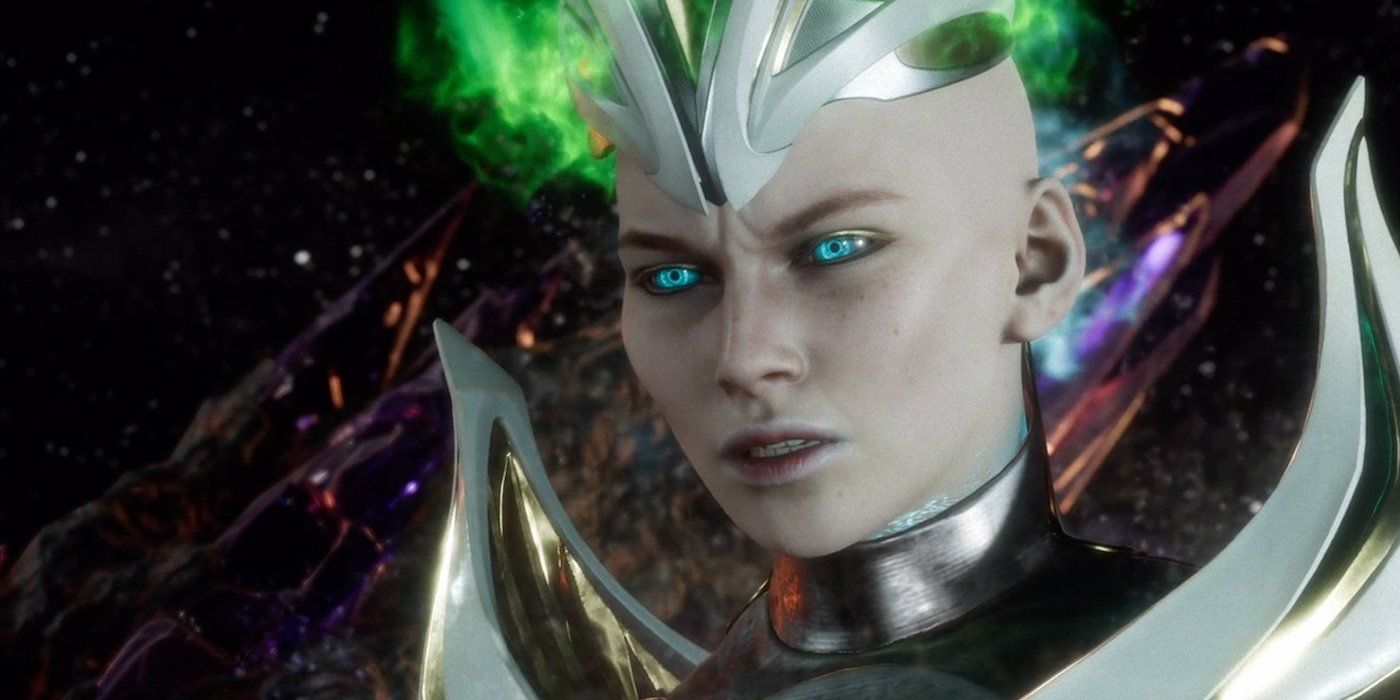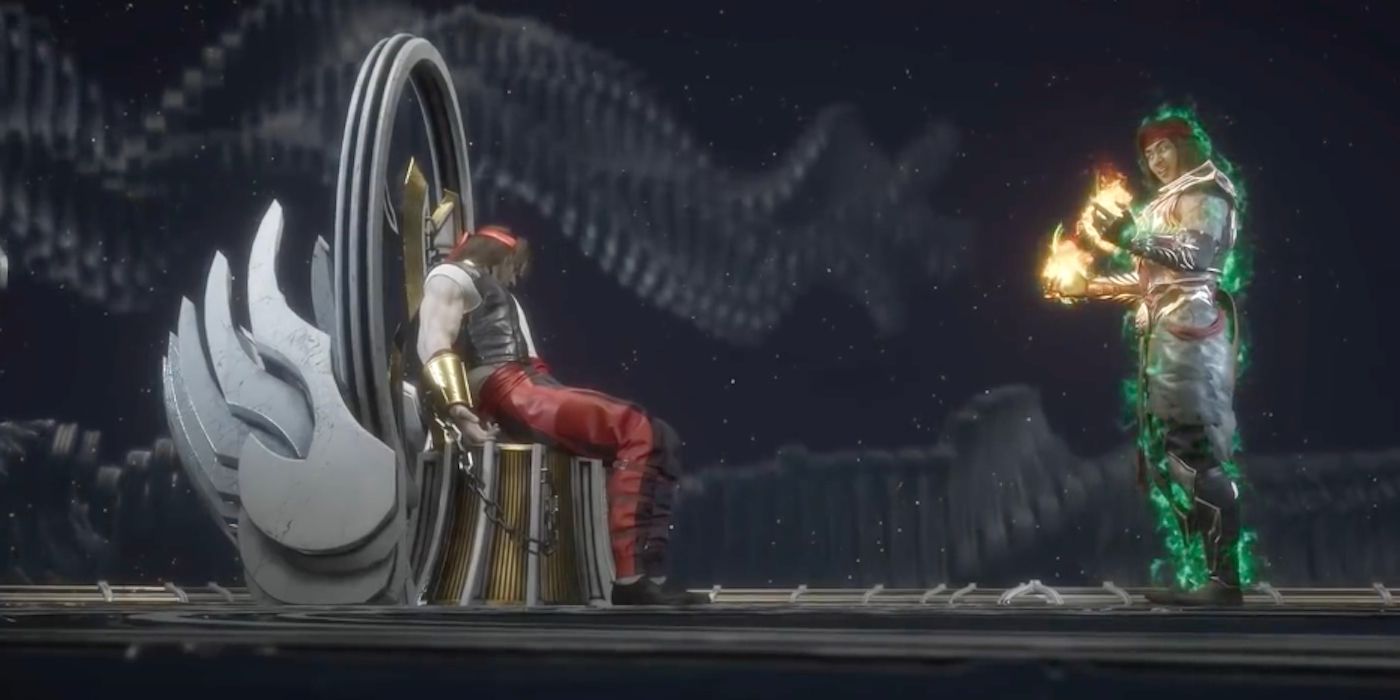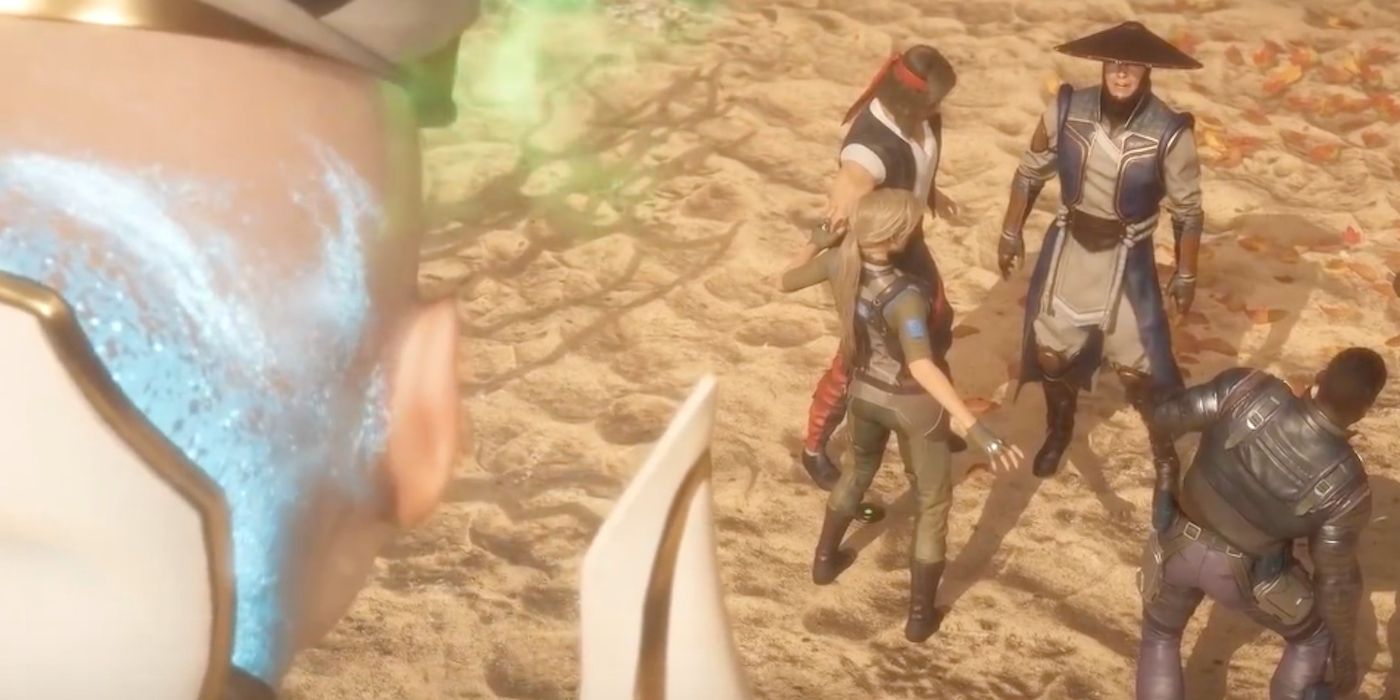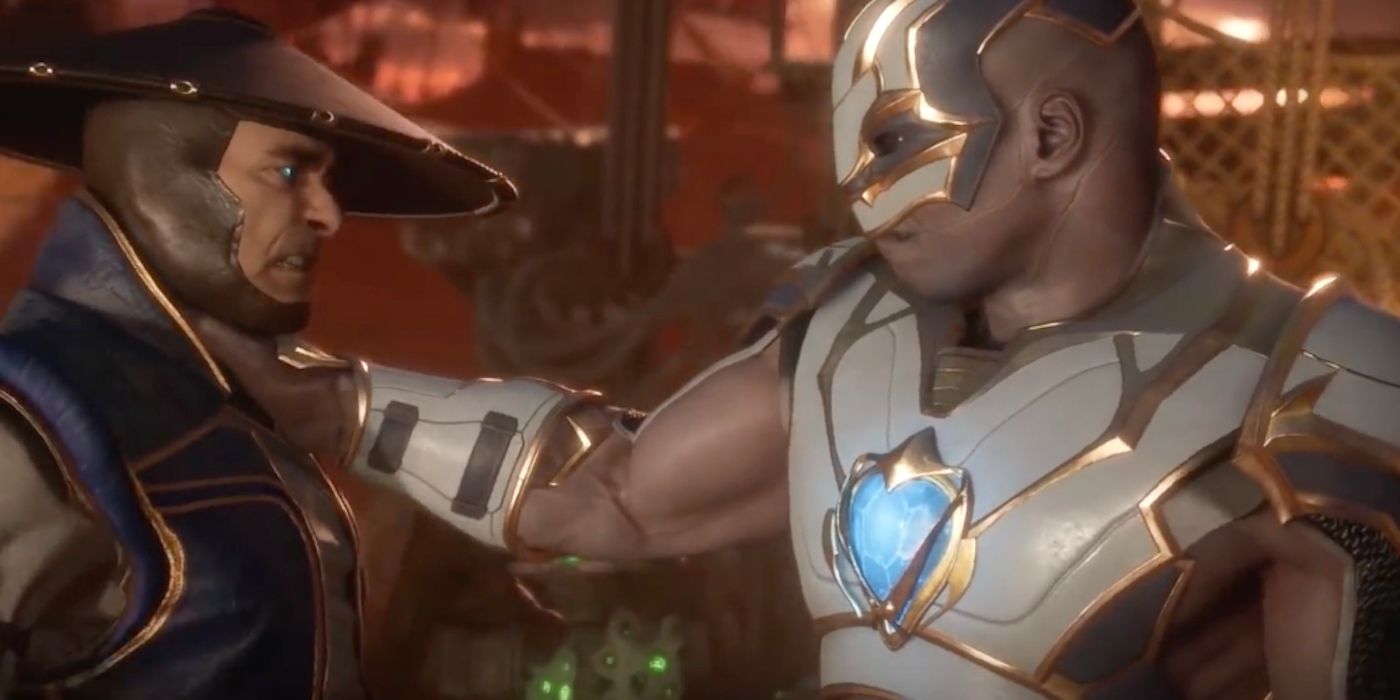Following the events of Mortal Kombat X, the Keeper of Time, Kronika, is rewriting history in Mortal Kombat 11. Her main goal is to secure temporal energy from Earthrealm's Jinsei and Shang Tsung's Well of Souls, all so she can create a singular timeline in a process called "timecrafting."
However, with Kronika's timeline merging bringing together characters from various eras, it's easy to see a couple plot holes and paradoxes coming into play in the narrative.
THE LIU KANG PARADOX
It's established early on, as with any time travel story, that if one's younger self is killed, their future self will cease to exist. This rule also applies in MK11, and we see it in action early on when a time-displaced Sonya Blade puts a bullet through young Kano's head, murdering the older Kano in the process. In the finale, though, the game forgets this rule when it's time for Liu Kang's Revenant to power up.
After Kronika kidnapped the classic '90s era version of Liu Kang so he wouldn't interfere in her ritual, the Revenant absorbs the soul of his younger self. This binding process increases the power of the evil Liu Kang exponentially, but this shouldn't happen at all, as it's a blatant contradiction of the aforementioned rule. When young Liu Kang loses his soul (i.e. his life essence), he dies and, as such, the Revenant (a zombified version of the adult Shaolin warrior) should have died too.
KRONIKA'S OVERALL ENDGAME
In Mortal Kombat 11, the player discovers that the most prominent thorns in Kronika's centuries-old plan to reboot history have always been Raiden and Liu Kang. This is why she keeps manipulating them in the timestream, so they can keep going to war with each other. Her goal has always been for Liu Kang to die because of Raiden and then seek revenge, as their eternal conflict fed her hourglass. However, after they figure out her plan and adjust their tactics, it puzzles us why Kronika wouldn't just go back into the timestream and kill one (such as Liu Kang when she abducted him) or both of them.
Kronika has access to multiple timelines to wipe the duo out, yet persists in letting them build an army against her, knowing full well that, once united, they could destroy her. Not killing them before they team up like this is totally counterintuitive, especially as their war with each other no longer has bearing on her resetting the Sands of Time. Kronika could have simply snuffed the duo out in the past without them even knowing, but her inaction allows them to create the instrument of her downfall, the Fire God.
GERAS' TIME BENDING
Geras is tasked by Kronika with collecting the Jinsei, Shang Tsung's souls, and taking on several members of Raiden's alliance. Every time he dies, he keeps reversing time and goes on to beat his opponents, steal whatever relics he needs and then escape. However, at no point does it ever cross his mind to kill the heroes via time-freezing or using his knowledge of how the first fight went.
To make matters worse, when he battles the Thunder God in the finale, for some reason Geras doesn't use his time-bending at all. Raiden ends up throwing him into a bottomless pit known as the Sea of Blood, but, for plot convenience, Geras doesn't utilize his powers to weasel his way out of his life sentence. He simply lets Raiden doom him without an attempt to undo their encounter, reverse time to get the upper hand or freeze the battle so he can slay the alliance's leader in cold blood.
Mortal Kombat 11 is developed by NetherRealm Studios and published by Warner Bros. Interactive. It is currently available for PlayStation 4, Xbox One, Nintendo Switch and PC.




